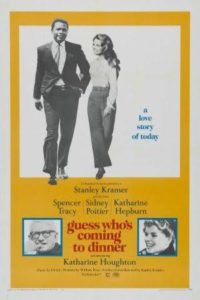Guess Who’s Coming to Dinner! Is It Diversity?

In 1967 there was a comedy-drama about interracial marriage with Sydney Poitier, Katherine Hepburn, Beah Richards, and Spender Tracy. Interracial marriage was still illegal in some states when the film was made.
At the time, the film and its subject were a “big deal.” While there are still people who “shudder” at the idea, and despite what some people think, we are not post-racial, but overall, interracial marriage is no longer a “shocker.”
The title was also provocative because for a vast majority of people in the United States, they never had to guess who was coming to dinner; it was people who were just like them.
However, as much as we talk about diversity and inclusion (which is a good thing,) and organizations are spending more money, time and resources to increase diversity in all of its dimensions in the workforce, the issue of race is still an issue today.
Unless it’s part of your identity, most people don’t want to be called racist, and want to be on the “right side” of the conversation. There are loud proclamations against racism, and condemnation when we hear about discrimination of any kind. We can’t imagine participating in that “kind of behavior,” or saying “those kind of things.” We join the call for apologies, suspension, and ostracism when someone else makes a racist, sexist or homophobic statement.
But how often do we (a collective we) ask why bias, assumptions, and “fear of the other” exist? How often do we (a collective we) wonder how to stop bias, assumptions and “fear of the other?”
When I consult in organizations I tell people to “take diversity to lunch,” and get to know people who are different.
My experience, research and observation is that the more meaningful, interpersonal interactions people have with people who are different than them, the more likely it is that bias, stereotypes and “fear of the other,” will be prevented or dramatically reduced.
Be curious. Sharing a meal with someone different than you, and talking about differences and finding commonalities can break down barriers, reduce tension and be the beginning of new relationships.
I was in a Palestinian-Jewish Dialogue Group and over dinner a Palestinian and a Jewish member discovered they both loved playing guitar and they both loved playing Bob Dylan songs. That was the beginning of a great friendship amongst two people who never thought they would be able to work together.
Take a few minutes to think about the people you go to lunch with or dinner. Ask yourself, “Who’s coming to dinner or who will be at dinner?” If you always know that it’s going to be people who are just like you, it’s time to make a change. Take diversity to lunch, ask diversity to dinner, and get to know people who are different than you. Be curious and put yourself in places where you can’t always “guess who’s coming to dinner.”
I’m launching a YouTube channel with everyday conversations on race, and cultural mash-ups. Stay tuned!

Recent Comments